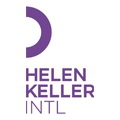


Helen Keller International is a non-profit organization with a vision of a world where no one is deprived of the opportunity to live a healthy life and reach their true potential. Co-founded in 1915 by Helen Keller and George Kessler, our work includes support to grow and eat nutritious food, stave off malnutrition, build strong immune systems, access life-saving medical treatments, and prevent and treat blindness and vision loss for over 80 million people in 20 countries across Africa, Asia, Europe, and the United States.
Helen Keller has been operating in Nepal since 1988, initially focusing on eye care and Vitamin A supplementation, but has since expanded to include maternal and child health and nutrition, nutrition behavior change, and nutrition-sensitive agriculture, among other sectors. We aim to tackle malnutrition and food insecurity in vulnerable communities by building local capacity and ownership; leveraging on strong monitoring, evaluation, and research systems; and advocating for national policies.
In response to the changing development landscape across the globe, Helen Keller has undergone a significant transformation. Formerly, the organization’s strategic focus was divided into three areas: nutrition, health, and neglected tropical diseases. We have now a two-pillar approach that prioritizes the food system and health systems and aims to create more impactful and resilient programs.
The organization is a pioneer in implementing integrated nutrition programs such as Suaahara I & II, Action Against Malnutrition through Agriculture (AAMA), and Sustainable Action for Resilience and Food Security (SABAL).
Helen Keller International is a non-profit organization with a vision of a world where no one is deprived of the opportunity to live a healthy life and reach their true potential. Co-founded in 1915 by Helen Keller and George Kessler, our work includes support to grow and eat nutritious food, stave off malnutrition, build strong immune systems, access life-saving medical treatments, and prevent and …
Views: 3528 | This job is expired 3 years, 11 months ago
No. of Vacancy: 7
Location: Health Office of Baglung, Dolakha, Panchthar, Bhojpur, Darchula, Bajhang and Pyuthan districts – 1 no each
Duration: 3 Months
Summary of Job Purpose:
This position will be responsible to support Case Investigation and Contact Tracing (CICT) and Risk Communication and Community Engagement (RCCE) interventions of the districts, support the relevant government agencies in delivering the vaccines to the designated vaccination centers/health facilities, record-keeping, and reporting of the progress; support to operate Information Management Unit (IMU) software and generate reports on daily basis; support to carry out CICT training, consultative and refresher meeting at district, municipal and ward/group level; undertake gap analysis of targeted populations and the number of people inoculated; provide orientation on CICT activities to District Covid Management Committee (DCMC) and COVID response team of PNGOs; facilitate local level consultative meeting to plan the roll out of tole committee at local level; provide CICT & IMU training to CICT team members at district level; oversee and support for the formation/revitalization of COVID-19 Tole Committee at ward level; mobilize COVID-19 Tole Committees through bi-weekly and monthly meetings; coordinate/support the relevant government other agencies for the timely preparation and distribution/dissemination of SBC materials/messages; support the government agencies to identify the rumors and myths related to the vaccine and work with relevant stakeholders to foil such rumors or address such myths; support Suaahara II in the implementation of RCCE to support the vaccination campaign and CICT; technical backstopping to Community Engagement Facilitators for overall CICT implementation and its reporting and recording; and prepare progress reports on weekly basis and submit to the concerned officials.
Educational qualifications and experiences:
This job has expired.









